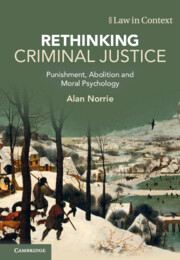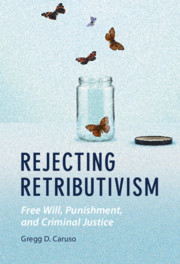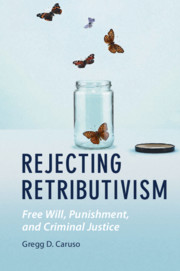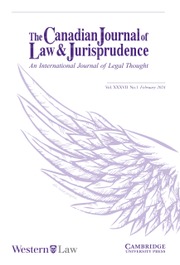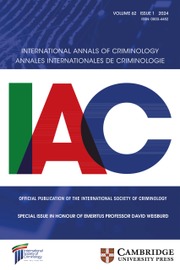Rethinking Criminal Justice
For 200 years, the penal equation 'crime plus blame equals punishment' has meant prison crises, a permanent crime problem, violent and damaged lives. The retributive theory of punishment supports this; fully developed, it could transform it. A moral psychology of violation distinguishes primitive and mature retributivism, explaining punishment's necessary failure and guilt, forgiveness and reconciliation's power. 'Atonement' means both punitive 'payback' and being 'at one' again with self and others. Reconciliation for offender, victim and society leads to punishment's deep, tendential abolition. Intellectually innovative and bold, Alan Norrie's mature retributivism is rooted in human ontology, in the metaphysical animal that thinks and loves. Speaking to law, philosophy, criminology and criminal justice, his moral psychology considers victims who victimise, grief at violation, denial and mourning and the loving prison. Exploring ethics, psychoanalysis, social theory, testimony and film, his psychologically developed moral philosophy challenges basic assumptions about punishment and the penal equation.
- Argues that societies need to move beyond the failed 'penal equation' that links crime to punishment
- Develops a new mature retributivist philosophy which illuminates abolitionist concerns
- For scholars and students of law, philosophy and criminology
Product details
June 2025Hardback
9781108478878
346 pages
250 × 178 × 24 mm
0.77kg
Available
Table of Contents
- 1. Criminal justice and the metaphysical animal
- Part I. Two Routes Beyond Political Theory:
- 2. Political theory and young Hegel's critique of punishment
- 3. Victims who victimise: guilt in political theory and moral psychology
- Part II. Moral Psychology, Law and the Metaphysics of Forgiveness:
- 4. Love, guilt and forgiveness
- 5. Law and the metaphysics of forgiveness
- Part III. The Animal that Thinks and Loves: On Guilt:
- 6. 'Feeling rotten': beyond philosophy's limit
- 7. Two accounts of guilt in Freud
- 8. Primitive and mature guilt: taking retributivism seriously
- Part IV. Three Case Studies: Denial, Mourning, Freedom, Reconciliation:
- 9. Denying guilt, taking responsibility: on Joshua Oppenheimer's The Act of Killing
- 10.Violation, mourning and melancholia: on Patricio Guzmán's Nostalgia for The Light
- 11. Guilt, freedom and reconciliation: on Jimmy Boyle's A Sense of Freedom
- Part V. Mature Retributivism as Abolition:
- 12. Mature retributivism as abolition.

